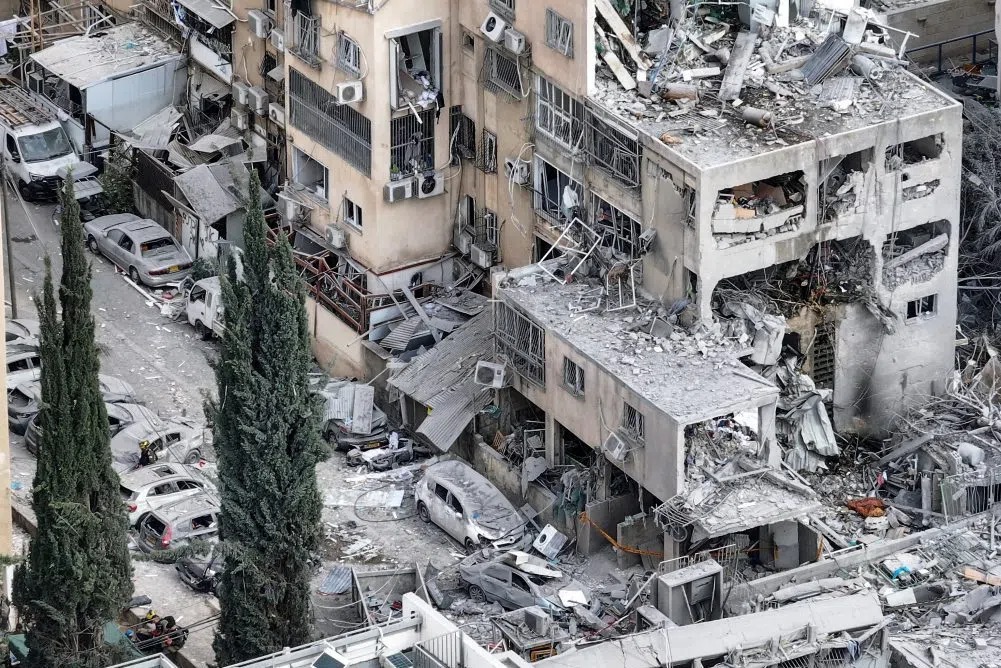During the 1982 Falklands War, Argentina’s military dictatorship fought British forces over the disputed South Atlantic islands. What remains largely hidden in mainstream accounts is that Israel, a declared ally of the West, was secretly arming Argentina throughout the conflict…
Despite repeated denials at the time, declassified British Foreign Office cables, intelligence reports, and post-war documentation confirm Israel’s covert arms transfers to Buenos Aires—a shadowy episode in Cold War geopolitics that reveals deep contradictions in Western alliances.
🇦🇷 The Military Junta’s Arms Hunt
In early 1982, Argentina’s military regime, led by General Leopoldo Galtieri, scrambled to bolster its armed forces ahead of a confrontation with the UK over the Falkland Islands (Islas Malvinas). With arms embargoes tightening, the junta sought weapons and spare parts from sympathetic or opportunistic states. Israel emerged as one of the few willing suppliers.
🇮🇱 What Israel Supplied
Evidence confirms Israel provided or upgraded several weapons systems that were operational during the war:
- A-4 Skyhawk jets: Originally from the U.S., but retrofitted and modernised by Israeli Aerospace Industries.
- Nesher/Dagger jets: Israeli-built versions of the French Mirage 5, sold to Argentina in the 1970s but still combat-ready in 1982.
- Air-to-air missiles, radar warning receivers, drop tanks, and SIGINT systems: Key for extending sortie range and electronic warfare.
- Maintenance crews and logistics: Via Peru and other intermediaries, ensuring continued aircraft operations during the war.
These aircraft, using Israeli parts and support, flew over 150 combat sorties, including bombing missions that killed dozens of British servicemen.
📦 Clandestine Logistics
The arms and support were not delivered openly. Israel routed shipments via Peru and Panama, using third-party front companies, non-Israeli cargo flights, and mislabelled manifests. This allowed the Israeli government to maintain plausible deniability while sustaining the Argentine war effort.
One declassified memo from British Ambassador Patrick Moberly in Tel Aviv noted:
“One is still left with the uneasy feeling that Israeli denial of having supplied anything to Argentina could … be got round by indirect supply of some kind which Israelis would of course be most anxious to conceal.”
📜 What the Diplomatic Cables Reveal
Newly released British diplomatic documents paint a damning picture. In a November 1984 memo, C.W. Long, then head of the Near East and North Africa department at the Foreign Office, wrote bluntly:
“Israel was one of the few countries to supply Argentina with arms during the Falklands conflict and has continued to do so.”
Long also revealed that Britain had tried to halt these sales:
“Foreign Secretary Geoffrey Howe personally asked Israel not to go ahead” with further military transfers.
Despite this, Long concluded:
“I do not believe the Israelis are to be moved on this issue.”
These cables suggest that Israel ignored British protests, prioritising arms trade profits and geopolitical influence in Latin America.
📰 The Guardian’s Confirmation
Even at the time, suspicions about Israeli support were public enough that top diplomats were forced to respond. In a 2003 Guardian obituary of Israel’s then-ambassador to the UK, Shlomo Argov, it was noted:
“Shortly before being shot [in June 1982], Argov was compelled to publicly deny reports that Israel had supplied arms to Argentina during the Falklands conflict.”
This marks a rare, contemporaneous public acknowledgement of the growing controversy—later vindicated by released documents.
🔍 Battlefield Evidence
British forces discovered Israeli-made equipment during the post-surrender sweep of Port Stanley, including:
- Israeli-coded electronic countermeasure units
- Spare parts compatible with Israeli-modified Skyhawks and Neshers
- Argentine intelligence logs referencing technical advice from Israeli contractors
While Britain had expected some leftover foreign military hardware, the extent and specificity of the Israeli support surprised officials.
🤐 British Restraint and Realpolitik
Despite Israel’s apparent betrayal of a wartime ally, Britain’s official response was muted. Public condemnation was avoided. The rationale was geopolitical:
- Britain relied on Israeli intelligence in the Middle East
- Open rupture with Israel risked backlash from U.S. allies and domestic lobbies
- Diplomatic priorities in the Cold War outweighed punitive responses
Instead, the Foreign Office leaked details to the press in a subtle pressure campaign—but even this failed to deter Israel’s continued trade.
🌐 Strategic Implications
This episode casts light on the double standards in arms diplomacy:
| Country | Public Position | Secret Action |
|---|---|---|
| Israel | Neutral | Armed Argentina during war |
| UK | Outraged privately | Avoided public fallout |
| Argentina | Isolated | Actively recruited covert suppliers |
It also highlights how the “rules-based international order” is often flexible when weapons and profits are at stake.
A Betrayal in the Shadows
Despite public denials, Israel’s role in the Falklands War is now irrefutable. British diplomatic cables, military field reports, and post-war obituaries all point to a covert but deliberate Israeli policy of arming Argentina—even while Argentina was at war with Britain. For the UK, this was a diplomatic betrayal swept under the rug in favour of “strategic silence.”
Israel, meanwhile, has never formally apologised or acknowledged the operation—another reminder that in geopolitics, allies often act as adversaries when the stakes are high and the profits hidden.




